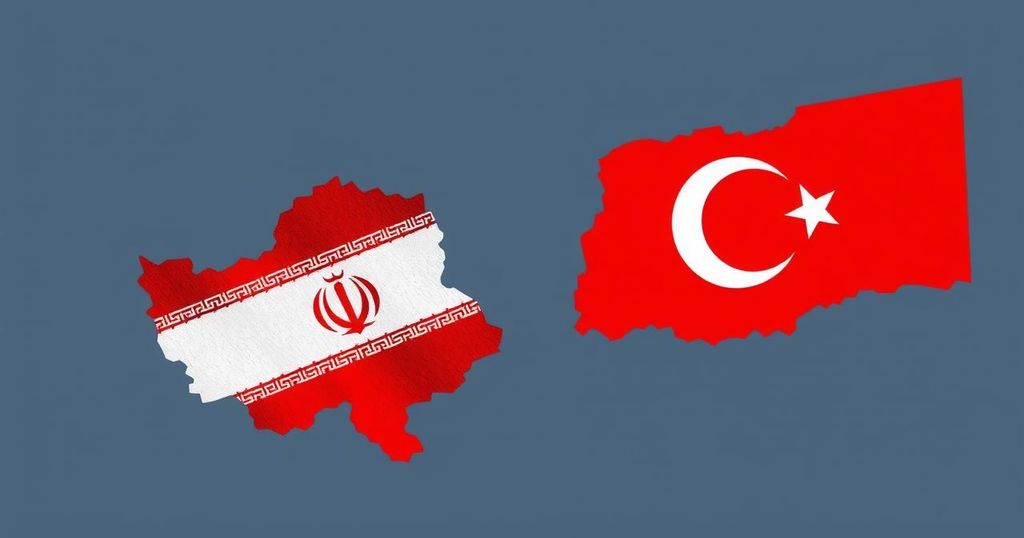In response to the death of Hamas leader Yahya Sinwar, Iranian Foreign Minister Abbas Araghchi visited Turkey as part of a regional diplomatic initiative aimed at bolstering support for Hamas and Hezbollah against Israel. This visit underscores a growing cooperation between Iran and Turkey, which, despite differing regional preferences, share mutual interests in countering Israeli activities and navigating complex geopolitical tensions involving Azerbaijan, Armenia, and Russia.
Following the assassination of Hamas leader Yahya Sinwar, Iranian Foreign Minister Abbas Araghchi undertook a diplomatic trip to Turkey as part of a regional tour aimed at consolidating Iran’s influence throughout the Middle East and isolating Israel. The itinerary included visits to multiple countries including Lebanon, Syria, Saudi Arabia, Qatar, Iraq, Oman, Jordan, and Egypt, indicating Iran’s efforts to reinforce alliances and build a united front against perceived threats, particularly those posed by the Israeli state. In the aftermath of Sinwar’s death, Iran and Turkey are expected to play pivotal roles in supporting militant groups such as Hamas and Hezbollah. Both Iran and Turkey maintain a mutual commitment to Hamas in its conflict with Israel, while Iran similarly supports Hezbollah operationally in Lebanon. During his participation in a South Caucasus regional conference, Minister Araghchi expressed concerns regarding the potential escalation of conflicts in both Gaza and Lebanon, emphasizing a shared understanding of the dire humanitarian situation affecting displaced individuals. His statement, acknowledged across Iranian state media, underscored the urgency of collaboration between Iran and Turkey as both nations expressed solidarity against Israeli military actions: “…his Istanbul visit coincided with his regional tour to the neighboring country to hold talks on the Israeli regime’s aggressions that have created a dangerous situation in the region.” The relationship between Iran and Turkey has fortified significantly over the last decade, marked by a shared interest in supporting Palestinian causes, even as both nations navigate distinct foreign policy stances elsewhere. For instance, the two powers are currently engaging in discussions regarding the geopolitical situation involving Azerbaijan, Armenia, and Russia. Historically, Turkey has aligned closely with Azerbaijan, while Iran has fostered a constructive relationship with Armenia. Russia’s involvement complicates the landscape further, maintaining alliances with both Turkey and Iran while accommodating Azerbaijan amidst its territorial conflicts with Armenia. Additionally, Turkish Foreign Minister Hakan Fidan indicates a rising belligerency toward Israel, a sentiment reflected in President Recep Tayyip Erdogan’s increasingly harsh rhetoric against the Israeli government.
The dynamics between Iran and Turkey have evolved significantly, particularly in light of recent regional conflicts. The assassination of Hamas leader Yahya Sinwar has triggered a reevaluation of alliances in the Middle East, with both countries reconsidering their strategic partnerships. Iran has long been a backer of Hamas and Hezbollah, while Turkey’s involvement has escalated in recent years, influenced by rising anti-Israeli sentiment among its leadership. As both countries seek to assert their influence, the dynamics of their regional relationships are further complicated by conflicts involving Azerbaijan and Armenia, as well as the ongoing humanitarian crises in Gaza and Lebanon.
In conclusion, the death of Yahya Sinwar has catalyzed increased cooperation between Iran and Turkey, reinforcing their commitment to supporting Palestinian factions against Israeli aggression. This collaboration is set against a backdrop of a complex geopolitical landscape involving regional conflicts and alliances. The strengthening ties between Tehran and Ankara may herald a new phase in Middle Eastern politics, necessitating close attention to their strategic maneuvers and the implications for regional security.
Original Source: www.jpost.com






